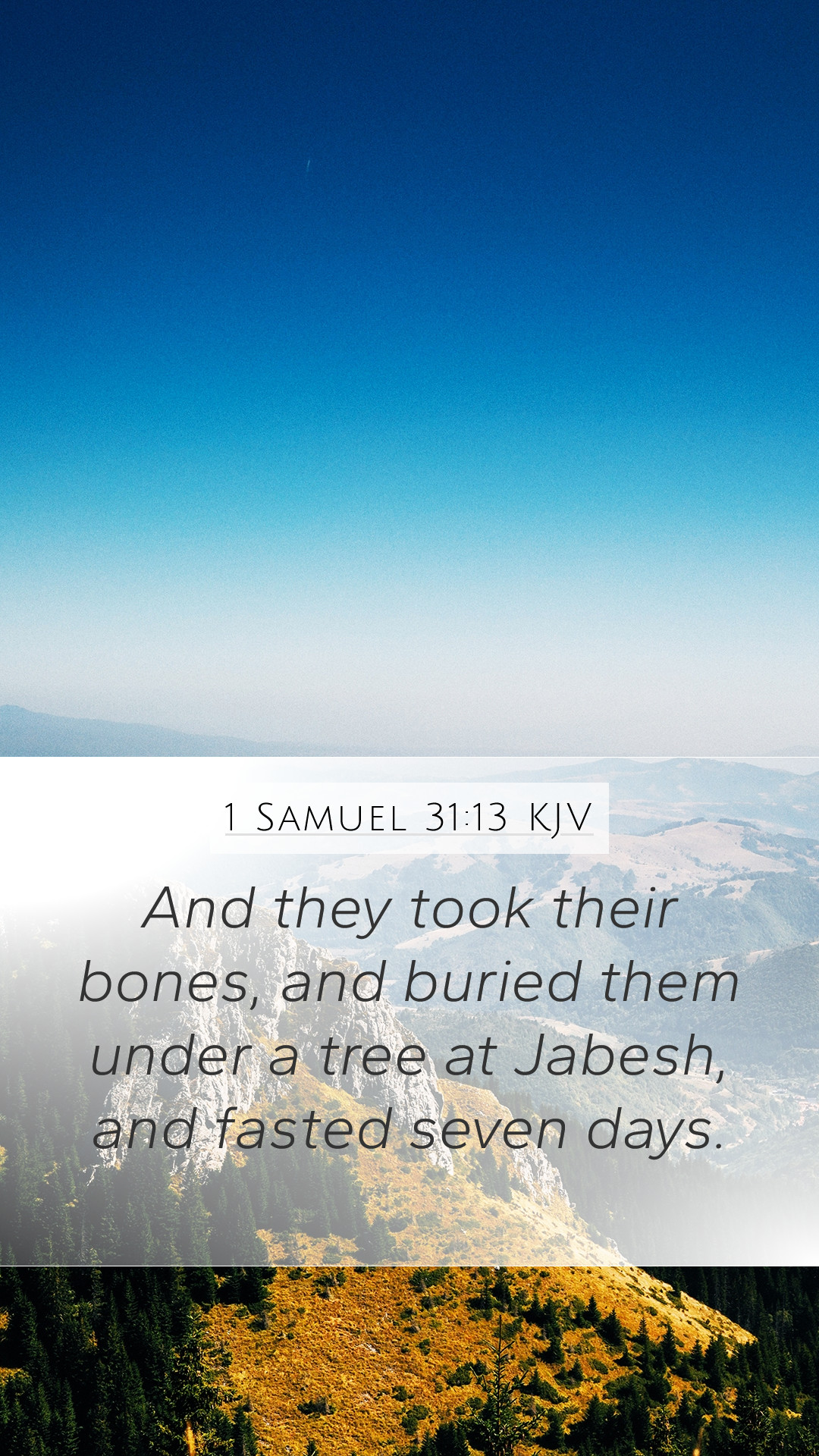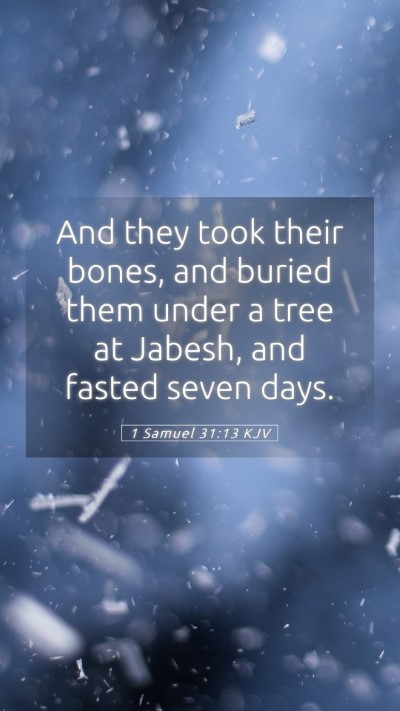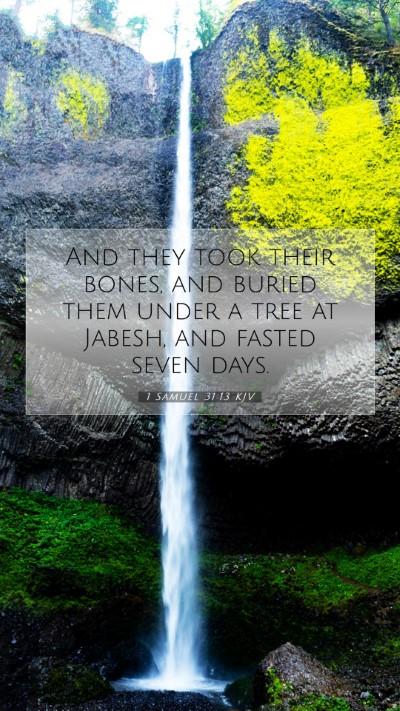Understanding 1 Samuel 31:13
“And they took their bones, and buried them under a tree at Jabesh, and fasted seven days.”
In 1 Samuel 31:13, we see the aftermath of Israel’s tragic defeat and the death of King Saul. This verse encapsulates the reverence with which the deceased were treated, even amidst such sorrow. Let us explore the implications and meanings derived from this scripture through various public domain commentaries.
Bible Verse Explanations
-
Matthew Henry's Commentary
Matthew Henry emphasizes the respect shown towards Saul’s remains. Despite his failure as a king and the chaos that ensued, the people of Jabesh-Gilead honored him. They executed a proper burial, showcasing their loyalty and recognition of Saul’s earlier leadership.
Henry also notes the significance of the fasting that accompanied the burial - an act of mourning and reflection on the loss of national leadership. This also illustrates how the community grieved not just for Saul but for the larger implications of his downfall.
-
Albert Barnes' Notes
Barnes provides an insight into the cultural practices surrounding burial in ancient Israel. He points out that honoring the dead by burial was a common practice, distinguishing the Israelites from their pagan neighbors who often left bodies unburied.
Albert Barnes further draws attention to the symbolic significance of the tree under which Saul’s bones were buried, indicating a return to the earth and a sense of closure for the people who looked to Saul as their leader, however flawed he was.
-
Adam Clarke's Commentary
Clarke focuses on the emotional aspect of this passage. He articulates that the fasting for seven days not only symbolizes mourning but reflects the deep-rooted connection the Israelites had with their king. Their actions were a public declaration of their sorrow for the demise of their king and the grief of losing their battle.
Moreover, Clarke highlights the idea of collective grief that permeates through the community as they gather to honor Saul, marking an end to a tumultuous chapter in their history.
In-Depth Bible Verse Analysis
The acts of burial and fasting in this verse resonate with themes of respect for the dead and the community’s response to loss. Understanding this verse can offer valuable insights into the values and customs of the ancient Israelites, particularly in how they dealt with leadership and mortality.
Historical Context of 1 Samuel 31:13
Historically, Saul’s reign was marked by strife, conflict, and eventual disobedience to God, leading to his tragic end. The actions taken by the men of Jabesh-Gilead reflect a deep sense of nostalgia for a king who once was seen as a unifier, despite his ultimate failures. This historical context provides a richer understanding of the emotional weight carried by this verse.
Application of 1 Samuel 31:13 in Daily Life
For contemporary readers, this scripture invites reflection on how societies honor those who have led them, as well as how they cope with loss. It challenges individuals to consider the importance of respect and remembrance in the context of leadership and community.
Cross References
- 2 Samuel 2:4 - David is anointed king at Hebron, highlighting the transition of leadership.
- 1 Chronicles 10:12 - Offers another narrative on the respectful treatment of Saul’s remains.
- Deuteronomy 21:23 - Discusses guidelines for the burial of the dead among the Israelites.
Conclusion
This exploration provided a deep dive into the meaning of 1 Samuel 31:13, illustrating how biblical texts can serve as a lens for understanding significant theological, historical, and social concepts. From biblical exegesis to practical applications in life, this verse enriches our insights into the culture of ancient Israel and the ongoing significance of honoring our leaders and reflecting on their legacies.
Further Study
Individuals seeking to delve deeper into the meanings of Bible verses are encouraged to engage with various Bible study tools, resources, and materials that facilitate understanding scripture more comprehensively. Through Bible study groups or online Bible study courses, one can gain broader perspectives on difficult passages and their applications in modern life.


